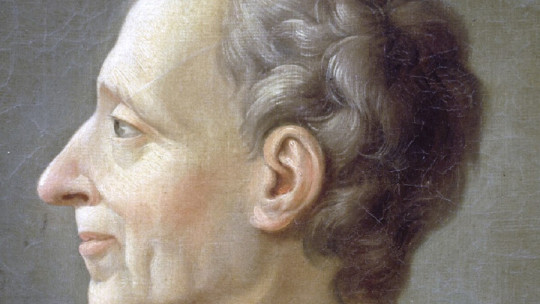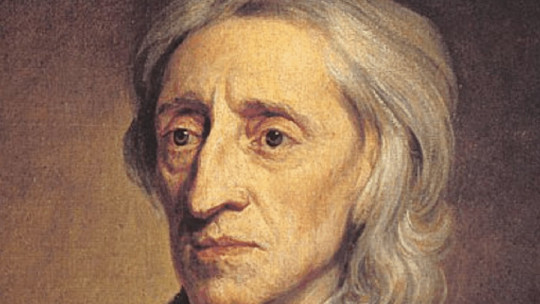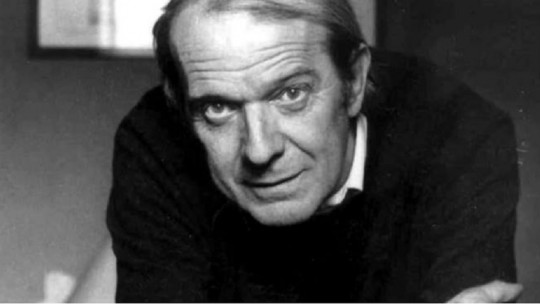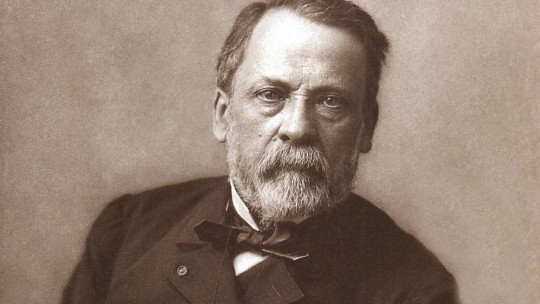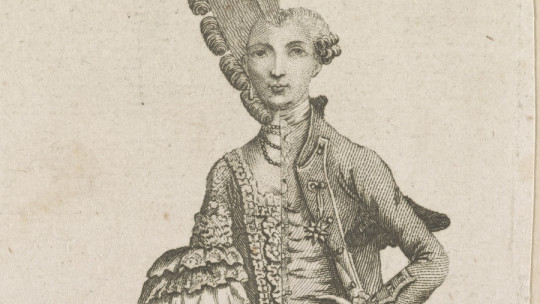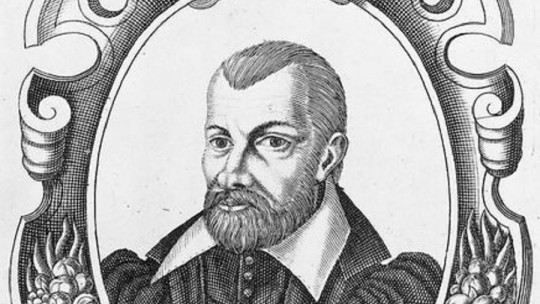If we say the name of Charles Louis de Secondat He may not say anything to many, even though his vision of the division of political powers has been key to many of the modern liberal constitutions.
Much better known as Montesquieu, this great French thinker lived in times of the Enlightenment, at a time when the English Monarchy had to evolve into a constitutional regime to survive and France, after the absolutist reign of Louis XIV, gave way to what It would be the germ of the French Revolution.
These events did not go unnoticed in the works of this philosopher who, in fact, could not resist explaining in detail how the events of his time influenced his thinking and political vision. Let’s find out through this biography of Montesquieu
Brief biography of Montesquieu
Charles Louis de Secondat, lord of la Brède and Baron de Montesquieu, better known as simply Montesquieu, was a French philosopher and jurist whose work was written in the midst of the Enlightenment, a context of intense intellectual, cultural and political activity , being one of the most important philosophers and essayists of the movement. His theory about the separation of the powers of the State had a great impact, exerting a notable influence on the Constitution of the United States.
His thought is framed within the critical spirit of the French Enlightenment, being characterized by religious tolerance, the aspiration and promotion of freedom and its concept of happiness in the civic sense. It should be said that he did not follow the rest of the enlightened people in absolutely everything, since He distanced himself from the dominant current of abstraction and the deductive method shared by many scientists of the time being a supporter of more concrete and empirical knowledge.
He has been considered a promoter of the English Constitution and his proposal on the separation of powers is very close to the thought of John Locke. However, it must be said that the thought of Charles Louis de Secondat is complex and has such a personality that makes him one of the most influential thinkers in the history of political doctrines.
Early years
Charles Louis de Secondat was born on January 18, 1689 in the castle of La Brède , a short distance from Bordeaux, France. He was the son of Jacques de Secondat and Marie-Françoise de Pesnel, his family belonging to the so-called toga nobility. His mother, who died when Charles de Secondat was barely seven years old, was the heir to a significant fortune that the baronage of La Brède brought to the de Secondat family.
Montesquieu He studied at the Catholic school of Juilly and would later follow the family tradition of studying law First he would do it at the University of Bordeaux and later he would do it at the University of Paris, coming into contact with the intellectuals of the French capital. When his father died in 1714 he returned to La Brède where he became a counselor in the Parliament of Bordeaux.
There he would live under the protection of his uncle, at that time Baron de Montesquieu. A year later Charles Louis de Secondat married Jeanne Lartigue, a Protestant who gave him a significant dowry when he was only 26 years old. In 1716 his uncle died, inheriting a fortune as well as the title of Baron de Montesquieu and Président à Mortier in the Parliament of Bordeaux, a title that he would hold between 1716 and 1727.
A philosopher of the Old and New World
At this time England had already established itself as a solid constitutional monarchy as a result of the Glorious Revolution (1688-1689) and had united with Scotland in the Union of 1707, forming the Kingdom of Great Britain. Meanwhile, in France, Louis XIV, who had ruled for a long time, died in 1715 and was succeeded by Louis XV, who was only 5 years old. These national transformations had a great impact on Montesquieu, who would refer to them in several of his writings.
Montesquieu receives literary recognition for publishing his work “Lettres persanes” (“Persian Letters”, 1721), a satire based on the imaginary correspondence between a Persian visitor walking through Paris, which highlights the absurdities of contemporary European society. Later he published “Considérations sur les causes de la grandeur des Romains et leur décadence” (“Considerations on the causes of the greatness and decline of the Romans”, 1734).
In 1748 he anonymously published “De l’Esprit des Loix” (“The Spirit of the Laws”), a text that quickly elevated him to a position of great influence. Although in France he had a rather poor reception, both from those who supported and those who were against the regime, he had a greater impact in the rest of Europe, especially in Great Britain. In fact, it caused a real stir in the Catholic world, being banned by the Catholic Church, which included this book in the “Index Librorum Prohibitorum.”
Montesquieu was also popular in the New World. He was highly valued among the enlightened British colonists, being seen as an example of freedom, although not yet a reference for the Independence of the Thirteen Colonies. In fact, Montesquieu was the most cited person on government and politics in pre-revolutionary British colonial America, and he was also cited by the American founders more than any other source except the Bible itself.
After the American Revolution occurred, Montesquieu’s works continued to strongly influence many of the thinkers and founders of the United States among them James Madison of Virginia, one of the fathers of the US Constitution. Montesquieu’s philosophy promotes the idea that a government should be formed in which no man is afraid of the other, an aspect that would be vindicated and remembered by Madison when writing the Constitution.
Last years
Montesquieu He was admitted to the Academy of Sciences of Bordeaux, where he presented several studies on the adrenal glands, gravity and echo He worked as a magistrate, but this profession bored him, so in the end he ended up selling the position and decided to travel around Europe, observing the customs and institutions of different countries.
During his last years he dedicated himself to traveling and finishing several of his works. He had the opportunity to visit all kinds of countries, mainly Austria, Hungary, Italy and England. As he learned more about other cultures, the more ideas came to his mind to explain and understand society and politics, and also ways to make men freer.
But despite being a very lucid man, illuminated by the Age of Enlightenment, there was a moment when he could only imagine the light, since he progressively lost his sight until he became completely blind. He died on February 10, 1755 in Paris, at the age of 66 His body is buried in the Church of Saint-Sulpice in the French capital.
Philosophy of history
His particular philosophy of history minimizes the role of individuals and events. Montesquieu presents his point of view in “Considérations sur les causes de la grandeur des Romains et de leur décadence”, in which he states that each historical event was inspired by a particular event rather than by the action of one or a group of people. specific.
Montesquieu exemplified this principle with situations that occurred in the times of classical Rome. In analyzing the passage from the Republic to the Empire, Montesquieu suggested that if Julius Caesar and Pompey had not worked to usurp the government of the Republic, other men would have done so. The cause of the beginning and end of the main historical events was not the ambition of specific characters, in this case Caesar and Pompey, but the ambition of human beings in general.
His vision of politics and the division of powers
Montesquieu developed the ideas that John Locke had already cultivated about the division of power In his work “The Spirit of the Laws” he expresses his deep admiration for English political institutions, stating that the law was the most important thing in a State. By publishing his “Persian Letters” in 1721 he acquired overwhelming success and renown in French society at the time, concerned about the regency of the young Louis XV of France, a king who had yet to learn to be one.
“The Spirit of the Laws” is considered his main work, originally published in Geneva in 1748 after fourteen years of work. This work was the subject of harsh criticism, especially by the Jansenists and the Jesuits. Montesquieu did not sit idly by and responded to these attacks, publishing in 1750 a defense of this work that would later end up being censored by Rome in 1751.
Based on this work, Montesquieu’s great contributions to Western thought and the scientific study of human societies are considered to be two points. The first is the fact of undertaking the scientific task of describing social reality based on an analytical and positive method, which does not stop at the mere empiricist description of facts, but rather attempts to organize the diversity of data of social reality by reducing it to a specific number of types or variables
In addition to this, it aims to provide a sociological response to the diversity of social facts under the idea that there is an order or causality of these facts that is susceptible to being interpreted rationally. That is, a social phenomenon must have some cause, and this can be addressed without resorting to mystical or supernatural explanations.
However, his most important legacy is his theory of the separation of powers, which has led him to be considered by many as one of the precursors of liberalism, along with figures such as John Locke. Although he was not the first to talk about the separation of powers, it is worth noting that it was his theory that ended up exerting the most force on this idea, and he was seen as the greatest exponent of this issue. His theses would serve as a starting model for the rulers of the 18th and 19th centuries when drafting constitutions
The structure that Montesquieu presents is clearly influenced by the British constitutional system, which was relatively new at its time. The political system was divided into three powers , which acted as a check, balance and control of those who exercised such powers. The idea was to prevent the same person from hosting all the functions of the State, since that would mean an absolutist regime in which it would be difficult to stop a bad ruler.
Montesquieu attributes legislative power to Parliament, that is, creating laws; to the government the executive power, that is, to exercise political power; and to the courts of justice the judicial, that is, applying the laws and dictating whether they have been complied with or not. It is through these three separate powers that Parliament, the Government and the Courts are prevented from committing abuses, which would make people less free in the country that, precisely, should grant them freedoms, protection, rights and obligations.

